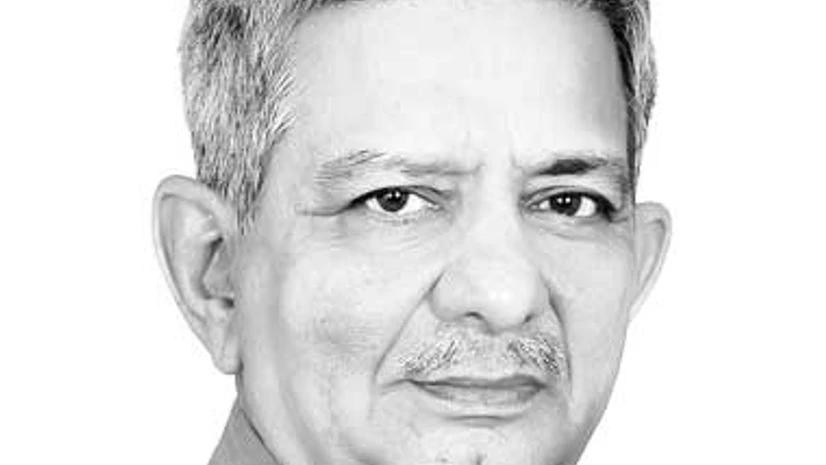In his Independence Day address, Prime Minister Narendra Modi brought Balochistan back on the agenda when he said the Baloch people had thanked him for speaking up against human rights violations by Pakistan. Rajiv Dogra, former ambassador and India's last consul general to Karachi, tells Manavi Kapur why Balochistan and Kashmir cannot be viewed through the same prism. Excerpts:
How has India's stand on Balochistan shifted?
India's stand has not shifted. But people are becoming more aware about what is going on there.
Also Read
Sadly, Balochistan's angst had been a voice in wilderness so far. The fact is that Baloch people have been in the revolt mode from the early 1950s. And each time Pakistan state's response has been repression. From napalm to aerial bombing, Pakistan has used the most extreme methods there.
Over the last 30 years, the situation has become more complex because the ISI decided to house the Quetta Shura there. So, Taliban's operations in the region began to be directed from Balochistan. This naturally led to friction with the Balochis who did not want terrorists in their midst. Simultaneously, ISI barred all foreign media from Balochistan. As a result the repression and human rights abuses went largely unreported. It is only now that the world has begun to take notice of the grim situation there.
India has been concerned about the situation in Balochistan for a long time. Therefore, prime minister has not said anything to indicate a shift. All he spoke about was the messages coming out of Balochistan about the condition the people live in.
There seem to be more voices coming out of Balochistan since India became vocal about the issue. Is this the first time this is happening?
We need to look at the history of Balochistan itself to properly comprehend the situation. Balochistan was never interested in joining Pakistan. As a matter of record, it should be said that Balochistan's Khan of Kalat had appointed Jinnah as his lawyer to articulate the case for Balochistan's independent status. And Jinnah had accepted that task. But once he became the governor general of Pakistan he changed his brief and betrayed the Khan of Kalat.
In 1948, Jinnah decided that it was time to annex Balochistan. Ever since it has been treated like a colony of Pakistan. It is the only state in Pakistan that is blessed with rich natural resources, but its people do not get their due share of the revenues. As a result, they are deprived of health and education facilities and its economy is in a primitive state.
Like the rest of the world, India too has been concerned about the conditions there and it has been expressing its anguish periodically. But because of the media blackout in Balochistan the full extent of the agony of the people there is not known yet.
The Pakistani spokesperson has said that by commenting on Balochistan, India is interfering in Pakistan's interior matter. Is this true?
This is a bizarre statement coming from Pakistan. As the world's only terrorist-state, it interferes in the internal affairs of other countries routinely. In India, its violent imprint is visible everywhere from bomb blasts in Mumbai to terror in Kashmir, from attack in Pathankot to interference in the Babri issue, from pushing drugs to printing fake currency. Yet it starts crying foul the moment India takes up the matter of human rights violation of the Baloch people.
The Sharm-el-Sheikh statement of 2009 was said to be a huge blunder on India's part. Can the prime minister's statement now be seen as a reversal of that?
There is no parallel between what is happening in Balochistan and the terror by Pakistan in Kashmir. That is why the Sharm-el-Sheikh statement was a mistake. The two regions and their issues cannot be equated in the same scale.
The statement this time is about the condition in Balochistan and the prime minister has merely articulated our anguish as a neighbouring country. Being a responsible partner in the affairs of the region, India is justified in being concerned about the peace and stability in the countries it shares borders with.
Where do you see the two countries headed from here on?
Pakistan needs to realise that it cannot divert public opinion in its own country by unleashing bogeys. The earlier it stops spreading terror in the region, the better it is for itself and the subcontinent. Pakistan's economy is in a decline and it is facing an increasingly belligerent military. For its own sake, Pakistan needs to rein in the forces of evil and work towards maintaining peace and progress in the region.

)
